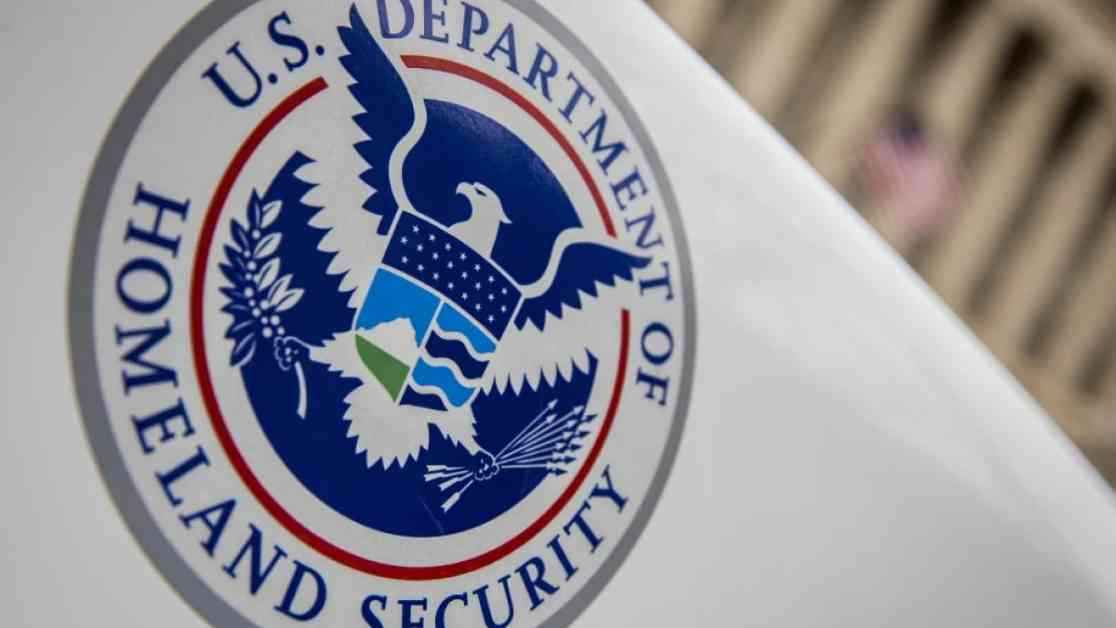The Department of Homeland Security has recently implemented polygraph tests to identify leaks within the agency. This decision comes after Secretary Kristi Noem and border czar Tom Homan attributed lower-than-expected ICE arrest numbers to leaked information about planned operations. The use of polygraph tests was first reported by Bloomberg Government and has since raised questions about privacy, accountability, and the extent to which these tests will be utilized.
Polygraph tests, commonly known as lie detector tests, have been a longstanding tool in the realm of law enforcement and security. However, the recent use of these tests at DHS to uncover potential leaks has sparked controversy and concern among employees. The practice involves questioning employees across various agencies within DHS about leaking classified information or sensitive law enforcement details related to ICE operations. While the exact number of employees subjected to these tests remains unclear, sources have confirmed that individuals have been asked to undergo polygraph examinations.
In a public statement, Secretary Kristi Noem expressed determination to hold accountable those responsible for jeopardizing law enforcement operations through leaked information. She mentioned identifying two specific leakers within the department and emphasized the serious consequences they would face. This announcement has put a spotlight on the internal dynamics at DHS and raised questions about the effectiveness and ethics of using polygraph tests as a means of rooting out leaks.
Challenges and Controversies Surrounding Polygraph Tests
The use of polygraph tests as a tool for identifying leaks within government agencies is not without its challenges and controversies. While these tests are designed to detect signs of deception, they are not foolproof and have faced criticism for their potential inaccuracies. The reliability of polygraph results depends on various factors, including the skills of the examiner, the physiological responses of the individual being tested, and the specific questions asked during the examination.
Moreover, the use of polygraph tests raises concerns about privacy and employee rights. Subjecting employees to lie detector tests without clear evidence of wrongdoing may create a culture of suspicion and undermine trust within the workplace. Employees may feel pressured to undergo these tests, even if they have not engaged in any illicit activities, out of fear of being labeled as suspects. Additionally, the results of polygraph tests are not always admissible as evidence in court due to their controversial nature.
Implications for National Security and Employee Morale
The decision to implement polygraph tests at DHS to identify leakers has broader implications for national security and employee morale. By cracking down on unauthorized disclosures of sensitive information, the department aims to safeguard its operations and protect the safety of law enforcement personnel. However, the use of polygraph tests as a primary means of identifying leaks may have unintended consequences, such as eroding trust between employees and management.
Furthermore, the effectiveness of polygraph tests in deterring leaks remains a topic of debate among experts in the field of security and intelligence. While these tests can be a useful tool in certain contexts, they are not a panacea for addressing complex issues related to information security. As the debate over the use of polygraph tests at DHS continues, it is essential to consider the broader implications of these practices on organizational culture, employee morale, and the overall effectiveness of security protocols.
In conclusion, the implementation of polygraph tests at DHS to identify leakers marks a significant development in the department’s efforts to enhance information security. However, the use of these tests raises important questions about their reliability, legality, and impact on employee morale. As the debate unfolds, it is crucial to strike a balance between protecting national security interests and upholding the rights and privacy of individuals within the agency. Only through thoughtful consideration and dialogue can DHS navigate the complex terrain of information security in the digital age.


